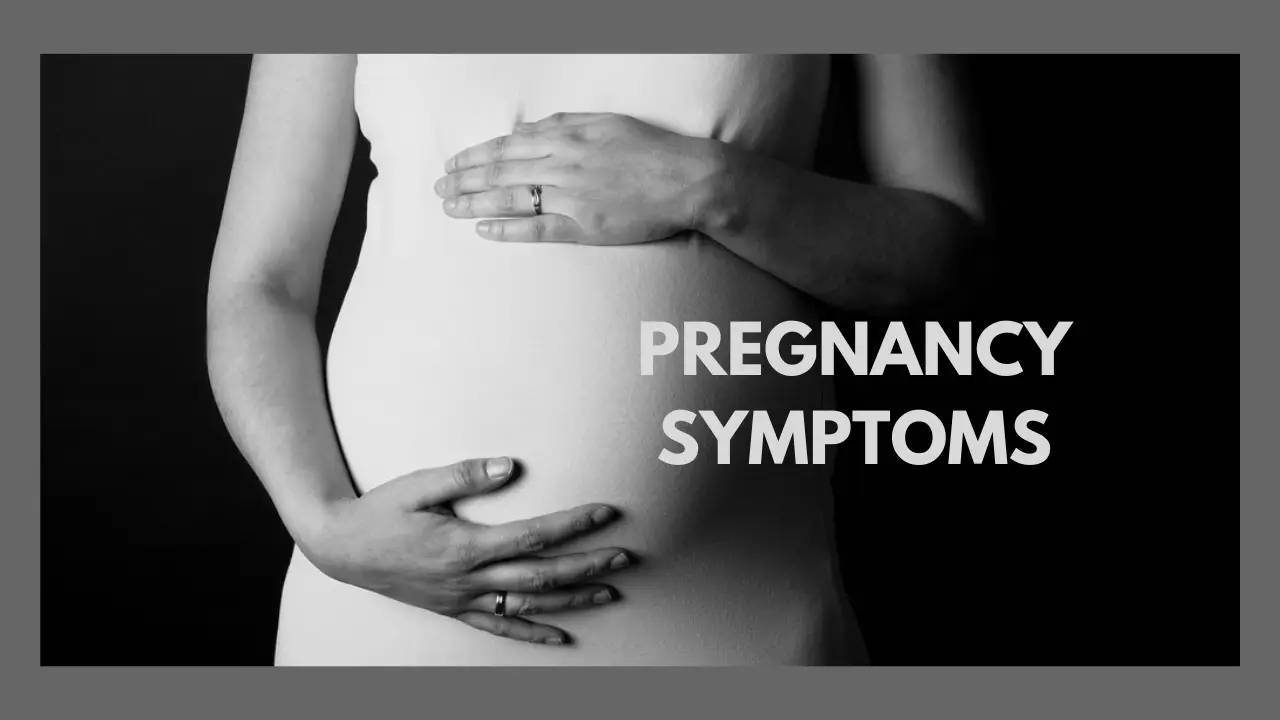Introduction
Pregnancy is a magical yet mysterious time filled with anticipation and excitement. For many expecting mothers, the first signs of pregnancy can be as elusive as they are thrilling. If you’re eager to understand what happens during the first 72 hours of pregnancy symptoms, you’re in the right place. This blog will walk you through the early signs to look out for, offering insights and practical tips that will help you recognize and manage these initial changes. It’s the best content for first 72 hours of pregnancy symptoms,
Read More. Food Substitutes for Rice,
The Moment of Conception
The first 72 hours of pregnancy begin at the moment of conception. When the sperm meets the egg, it marks the start of an incredible journey. While you may not feel anything just yet, a lot is happening inside your body. The fertilized egg will start dividing rapidly and make its way to the uterus.
During this time, some women may experience mild cramping or spotting. This is usually very light and easily overlooked. It’s your body’s way of responding to the initial stages of pregnancy. During these first hours, your body begins to produce hormones that will maintain the pregnancy, setting the stage for all the changes to come.
Hormonal Changes and What They Mean
Pregnancy is a profound journey marked by numerous physiological changes, with hormonal shifts playing a central role. Among the earliest signs that many women might experience—even within the first 72 hours after conception—is what’s often referred to as early morning sickness. Although it’s uncommon, understanding these initial symptoms and the hormonal changes causing them can help in managing this phase more comfortably.
Hormonal Changes Immediately After Conception
From the moment of conception, your body begins an incredible transformation. The fertilized egg, now a zygote, travels to the uterus and implants itself in the uterine wall. This process initiates a cascade of hormonal changes crucial for sustaining pregnancy:
- Human Chorionic Gonadotropin (hCG): Often dubbed the “pregnancy hormone,” hCG is one of the first hormones produced after the embryo attaches to the uterine lining. Its levels double every few days and can lead to early signs of morning sickness.
- Estrogen and Progesterone: These hormones increase significantly to maintain the uterine lining and support pregnancy. They also play a role in adjusting your body’s systems to accommodate the growing fetus.
- Relaxin: This hormone helps relax the body’s muscles, joints, and ligaments, preparing for the growth of the uterus, though it can also contribute to feelings of discomfort.
How Hormonal Changes Might Lead to Early Morning Sickness
The rapid rise in hormones, particularly hCG and estrogen, is often linked to nausea and vomiting, commonly known as morning sickness. Although morning sickness typically starts around the sixth week of pregnancy, some women report experiencing symptoms much earlier. These hormones affect the central nervous system and gastrointestinal tract, leading to feelings of nausea and changes in appetite.
Symptoms Experienced in the First 72 Hours
While it’s unusual, some women notice early signs of morning sickness within the first 72 hours after conception. Here are some symptoms that might be experienced:
- Mild Nausea: A subtle, often intermittent queasiness might be felt, which can be exacerbated by certain smells or foods.
- Heightened Sense of Smell: Even familiar scents can become overwhelming and trigger nausea.
- Dizziness or Lightheadedness: Hormonal changes can affect circulation, leading to brief periods of dizziness.
- Fatigue: An increase in progesterone may induce a feeling of tiredness, prompting the need for more rest than usual.
It’s important to remember that these symptoms can be caused by various factors and do not solely confirm pregnancy.
Tips for Managing Early Symptoms
If you suspect pregnancy and are dealing with early morning sickness, consider the following tips to ease discomfort:
- Eat Light and Frequent Meals: Small, regular meals can help keep nausea at bay. Choose simple foods like crackers or ginger biscuits.
- Stay Hydrated: Drinking fluids is essential. Consider water, herbal teas, or clear soups to maintain hydration and ease nausea.
- Avoid Strong Odors: Identify triggers and try to avoid them when possible. Fresh air or well-ventilated spaces might help.
- Rest and Relax: Adequate rest is crucial. Make sure to get plenty of sleep and take breaks to help your body adjust to its new state.
- Ginger and Peppermint: Both are known for their stomach-soothing properties. Ginger tea or peppermint candies can be effective remedies.
Early Morning Sickness
When it comes to pregnancy, one of the earliest and most common experiences women encounter is morning sickness. Despite its name, this condition can strike at any time of the day. Interestingly, some women report feeling symptoms very early on, even within the first 72 hours after conception. While medical confirmation of pregnancy is not possible this early on, many women claim to experience subtle changes that hint at what’s to come.
What Is Early Morning Sickness?
Early morning sickness refers to the nausea and vomiting that some women experience shortly after conception. This condition is believed to be triggered by the sudden changes in hormone levels that occur when a fertilized egg attaches to the uterine lining. Although most women start experiencing morning sickness around the 6th week of pregnancy, some sensitive individuals might notice signs much earlier.
Why Does Early Morning Sickness Occur?
The precise cause of morning sickness is not fully understood, but it is largely attributed to the rapid increase in hormones such as human chorionic gonadotropin (hCG) and estrogen. These hormones play crucial roles in maintaining pregnancy but can also lead to digestive disturbances. Some experts suggest that heightened sense of smell and increased stomach acid levels during early pregnancy could contribute to these feelings of nausea.
Common Symptoms in the First 72 Hours
While it’s rare for symptoms to appear within the first 72 hours, some women report experiencing:
- Mild Nausea: A sensation of queasiness that might come and go throughout the day.
- Increased Sensitivity to Smells: Certain odors may become more pronounced and potentially unpleasant.
- Slight Dizziness or Lightheadedness: Hormonal changes can affect blood pressure, leading to brief spells of dizziness.
- Fatigue: A surge of hormones can make you feel unusually tired, even if you are getting enough rest.
It’s important to note that these symptoms can also be attributed to other factors, and experiencing them does not definitively indicate pregnancy.
Tips for Managing Early Symptoms
If you suspect you might be pregnant and are dealing with early morning sickness, here are a few strategies that might help alleviate discomfort:
- Eat Small, Frequent Meals: Keeping your stomach from getting too empty can help manage nausea. Opt for bland, easy-to-digest foods like crackers or toast.
- Stay Hydrated: Sipping on water, ginger tea, or electrolyte drinks can help keep nausea at bay and prevent dehydration.
- Avoid Triggers: Identify and steer clear of any foods or smells that worsen your symptoms.
- Rest: Fatigue can exacerbate nausea, so ensure you get plenty of sleep and take naps if needed.
- Consider Ginger: Ginger is known for its nausea-relieving properties. Ginger candies, tea, or supplements may be beneficial.
Fatigue and Exhaustion
Pregnancy is a journey of profound transformation, beginning with subtle changes that can occur as early as the first 72 hours post-conception. Among these early indicators, fatigue and exhaustion are surprisingly common, even before a pregnancy test can confirm the exciting news. Understanding why these feelings arise and how to manage them can be invaluable for those embarking on this new chapter.
Why Does Fatigue Occur So Early in Pregnancy?
Fatigue in early pregnancy is primarily driven by the body’s immediate response to conception, as it begins to prepare for the nurturing of new life. This preparation involves significant physiological and hormonal shifts, even in the earliest days:
- Hormonal Surge: The moment the fertilized egg implants in the uterine lining, hormones like human chorionic gonadotropin (hCG) and progesterone surge. Progesterone, in particular, plays a critical role in maintaining the pregnancy and can induce feelings of tiredness.
- Increased Blood Production: To support the growing embryo, the body starts increasing blood production, which can lead to a decrease in blood pressure and blood sugar levels. This can contribute to feelings of fatigue and dizziness.
- Metabolic Changes: The body’s metabolism ramps up to provide energy to the developing embryo, which can leave you feeling more tired than usual.
Symptoms Experienced in the First 72 Hours
While noticeable symptoms can vary greatly among individuals, some women might experience:
- Persistent Tiredness: An overwhelming sense of fatigue that does not improve with rest.
- Lack of Energy: A general feeling of sluggishness or low energy levels, making daily activities feel more strenuous.
- Increased Need for Sleep: Despite getting enough hours of sleep, you may still feel the need for naps or additional rest.
It’s important to note that these symptoms can be caused by various factors and do not definitively indicate pregnancy.
Tips for Managing Fatigue During the Early Stages
Managing fatigue effectively during the initial days of pregnancy can help maintain your well-being. Here are some practical tips:
- Prioritize Rest: Listen to your body and allow yourself to rest as needed. Short naps can help combat sudden waves of tiredness.
- Maintain a Balanced Diet: Eating nutritious meals with plenty of fruits, vegetables, and whole grains can support energy levels. Small, frequent meals may also help stabilize blood sugar levels.
- Hydrate Consistently: Dehydration can exacerbate fatigue, so ensure you drink plenty of water throughout the day.
- Gentle Exercise: Light activities such as walking or prenatal yoga can boost energy levels and improve overall mood without overexertion.
- Create a Relaxing Sleep Environment: Ensure your sleeping area is comfortable and conducive to rest, with minimal distractions and a cool, dark ambiance.
Frequent Urination
Embarking on the journey of pregnancy can bring about a host of changes, some of which may surprise you with their early onset. One such unexpected symptom that some women notice even in the first 72 hours after conception is frequent urination. While it’s more commonly associated with later stages of pregnancy, understanding why it can happen early on and how to manage it can be beneficial.
Why Does Frequent Urination Occur So Early in Pregnancy?
Frequent urination in early pregnancy can be attributed to a combination of hormonal and physiological changes that begin almost immediately after conception:
- Hormonal Fluctuations: The hormone human chorionic gonadotropin (hCG) begins to rise shortly after implantation. This hormone, essential for maintaining pregnancy, can increase blood flow to the pelvic region, which in turn affects the kidneys and bladder, causing more frequent urination.
- Increased Blood Volume: As the body starts to support the growing embryo, it increases blood production, which leads to more fluid being processed by the kidneys and more frequent trips to the bathroom.
- Uterus Expansion: Although the uterus doesn’t significantly increase in size during the first few days, it begins to prepare for the growth to come. This preparation can exert slight pressure on the bladder, contributing to the feeling of needing to urinate more often.
Symptoms Experienced in the First 72 Hours
While frequent urination is a possible early symptom, other signs might accompany it, including:
- Mild Nausea: Some women might feel queasy due to early hormonal changes, which can also affect appetite and sense of smell.
- Fatigue: Increased progesterone and the body’s efforts to accommodate a new life can lead to tiredness and a need for more rest.
- Heightened Sense of Smell: Scents may become more pronounced, sometimes leading to aversions.
It’s important to recognize that these symptoms can be caused by various factors and do not conclusively indicate pregnancy.
Tips for Managing Frequent Urination
Experiencing frequent urination in the early days of pregnancy can be inconvenient, but these strategies may help manage the symptom:
- Stay Hydrated: While it might seem counterintuitive, maintaining proper hydration is crucial. Dehydration can lead to other issues like headaches and fatigue.
- Plan Bathroom Breaks: If possible, schedule regular breaks to empty your bladder, especially before leaving the house or during long activities.
- Limit Caffeine and Diuretics: Reducing the intake of beverages like coffee and tea can help minimize the frequency of urination, as these substances can act as diuretics.
- Bladder Training: Try to delay urination when you feel the urge, gradually increasing the time between bathroom visits to help your bladder hold more.
Breast Tenderness and Changes
Embarking on the journey of pregnancy, many women notice changes in their bodies almost immediately. One of the earliest signs can be breast tenderness and changes, sometimes appearing in the first 72 hours after conception. While these symptoms are more commonly associated with the early weeks of pregnancy, understanding why they might happen so soon can be helpful for those attuned to their body’s signals.
Why Does Breast Tenderness Occur So Early in Pregnancy?
Breast tenderness and changes can be attributed to the remarkable and rapid hormonal shifts that begin as soon as conception occurs. Here’s what happens during those initial days:
- Hormonal Surge: As soon as the fertilized egg implants in the uterine lining, the body starts producing hormones such as human chorionic gonadotropin (hCG) and progesterone. These hormones are crucial for maintaining pregnancy and can significantly affect breast tissue, leading to feelings of tenderness or sensitivity.
- Increased Blood Flow: The body begins to increase blood flow to the breasts in preparation for the potential need to produce milk, even in these early days. This increased circulation can cause swelling and sensitivity.
- Glandular Changes: The mammary glands begin to prepare for lactation, which can cause the breasts to feel fuller or heavier than usual, contributing to discomfort or tenderness.
Other Symptoms Experienced in the First 72 Hours
In addition to breast tenderness, some women may notice other subtle signs within the first few days of pregnancy:
- Mild Nausea: Hormonal changes can trigger a queasy feeling, though it’s more common in the weeks following conception.
- Fatigue: The surge in progesterone and the body’s energy demands can lead to a general sense of tiredness.
- Frequent Urination: Increased blood volume and hormonal changes can lead to more frequent trips to the bathroom.
It’s important to remember that these symptoms can vary widely among individuals and are not definitive indicators of pregnancy.
Tips for Managing Breast Tenderness During the Early Stages
Breast tenderness can be uncomfortable, but there are ways to alleviate the discomfort during these early days:
- Wear a Supportive Bra: A well-fitting, supportive bra can help reduce discomfort by minimizing movement and providing needed support.
- Apply Warm or Cold Compresses: Depending on what feels better, applying a warm or cold compress can relieve tenderness and soothe soreness.
- Avoid Caffeine: Some women find that reducing caffeine intake can help decrease breast tenderness.
- Gentle Massage: Lightly massaging the breasts can improve circulation and help alleviate discomfort.
- Stay Hydrated: Keeping the body well-hydrated can help manage fluid retention, which might contribute to breast soreness.
Heightened Sense of Smell
The journey of pregnancy is often accompanied by a variety of physical changes, some of which may manifest surprisingly early. One intriguing symptom that some women report as early as the first 72 hours after conception is a heightened sense of smell. This phenomenon can be both fascinating and challenging, and understanding its roots can provide clarity for those experiencing it.
Why Does a Heightened Sense of Smell Occur So Early in Pregnancy?
A heightened sense of smell during the early days of pregnancy is primarily driven by the body’s rapid hormonal adjustments following conception:
- Hormonal Changes: The surge in hormones such as human chorionic gonadotropin (hCG) and estrogen shortly after implantation can amplify sensory perceptions, including smell. These hormones are crucial in preparing the body for pregnancy and can influence the olfactory system, making smells more intense or noticeable.
- Evolutionary Perspective: Some researchers suggest that this heightened sense of smell may have evolved as a protective mechanism during pregnancy, helping expectant mothers avoid potentially harmful foods and environmental toxins.
Other Symptoms Experienced in the First 72 Hours
Alongside a heightened sense of smell, women might experience other early pregnancy symptoms, including:
- Breast Tenderness: Hormonal changes can lead to increased blood flow and glandular changes in the breasts, resulting in tenderness or sensitivity.
- Fatigue: A surge in progesterone and the body’s increased energy demands can cause a persistent sense of tiredness.
- Frequent Urination: Rising hCG levels and increased blood volume can lead to more frequent trips to the bathroom.
These symptoms can vary widely among individuals and may not definitively indicate pregnancy.
Tips for Managing a Heightened Sense of Smell
Navigating the early stages of pregnancy can be easier with strategies to manage a heightened sense of smell:
- Identify Triggers: Take note of specific scents that are more bothersome and try to minimize exposure when possible.
- Ventilation: Keep your living space well-ventilated to disperse strong odors. Open windows or use fans to maintain airflow.
- Use Scent-Free Products: Opt for unscented personal care and household products to reduce exposure to overwhelming smells.
- Carry Fresh Scents: Consider carrying a small bottle of a scent you find pleasant, like lemon or peppermint, to counteract unpleasant odors.
- Stay Hydrated and Eat Small Meals: Keeping hydrated and eating small, frequent meals can help manage nausea that might accompany strong smells.
Cravings and Food Aversions
Embarking on the journey of pregnancy can bring about various unexpected symptoms, even within the first 72 hours after conception. Among these, cravings and food aversions are intriguing phenomena that some women might begin to notice unusually early. Understanding why these changes occur and how to manage them can offer reassurance during this exciting time.
Why Do Cravings and Food Aversions Occur So Early in Pregnancy?
Cravings and food aversions in the early stages of pregnancy are closely linked to the body’s rapid hormonal and physiological changes:
- Hormonal Fluctuations: Shortly after conception, the body experiences a surge in hormones such as human chorionic gonadotropin (hCG) and progesterone. These hormones play vital roles in maintaining pregnancy and can affect taste and smell, leading to sudden desires for specific foods or aversions to others.
- Nutritional Needs: Early pregnancy signals the body’s preparation for supporting a growing embryo. This can lead to cravings as the body seeks specific nutrients necessary for the embryo’s development, even in these initial days.
- Evolutionary Adaptation: Some theories suggest that food aversions may have evolved to protect pregnant women from consuming potentially harmful substances, which is why strong aversions often develop towards foods that could pose risks during pregnancy.
Other Symptoms Experienced in the First 72 Hours
In addition to cravings and aversions, women may experience other early pregnancy symptoms, including:
- Heightened Sense of Smell: Hormonal changes can make smells more pronounced, influencing both cravings and aversions.
- Fatigue: Increased progesterone levels and the body’s growing demands can lead to a pervasive sense of tiredness.
- Breast Tenderness: Hormonal shifts can cause increased blood flow and changes in breast tissue, leading to tenderness.
These symptoms can vary widely and are not definitive indicators of pregnancy.
Tips for Managing Cravings and Food Aversions
Dealing with cravings and aversions during the early stages of pregnancy can be challenging, but these strategies may help:
- Balanced Diet: Aim for a balanced diet that includes a variety of nutrients to help manage cravings and ensure proper nutrition.
- Mindful Eating: Listen to your body and acknowledge cravings, but try to incorporate healthier alternatives when possible.
- Small, Frequent Meals: Eating smaller, more frequent meals can help manage aversions and maintain energy levels throughout the day.
- Stay Hydrated: Proper hydration can sometimes reduce the intensity of cravings and help manage aversions.
- Avoid Triggers: Identify and avoid foods or smells that trigger aversions, and keep your environment free from strong odors.
Emotional Roller Coaster
Embarking on the journey of pregnancy can be an emotional whirlwind, with many women experiencing a range of feelings remarkably early. Even within the first 72 hours after conception, emotional shifts can occur, leaving women feeling like they’re on an emotional roller coaster. Understanding why these changes happen and how to manage them can provide comfort and clarity during this transitional time.
Why Do Emotional Changes Occur So Early in Pregnancy?
The emotional ups and downs experienced in the early days of pregnancy are primarily driven by rapid hormonal and physiological changes:
- Hormonal Surges: As soon as conception occurs, the body begins producing hormones such as human chorionic gonadotropin (hCG) and progesterone, which are crucial for maintaining pregnancy. These hormones can significantly affect mood and emotions, sometimes leading to feelings of heightened sensitivity or mood swings.
- Biological Preparation: The body starts preparing for the significant changes ahead, and this can subconsciously trigger emotional responses. The anticipation of becoming a parent and the physical changes that start immediately can contribute to emotional variability.
- Psychological Response: The realization of a potential pregnancy can bring a mix of excitement, anxiety, and other feelings, which can influence emotional states, even in these early stages.
Other Symptoms Experienced in the First 72 Hours
In addition to emotional changes, women may notice other early pregnancy symptoms, including:
- Fatigue: The increase in progesterone and the body’s energy demands can result in tiredness, which can also affect mood.
- Heightened Sense of Smell: Hormonal changes can amplify sensory perceptions, which might influence emotional reactions.
- Breast Tenderness: Hormonal shifts can lead to changes in breast tissue, causing tenderness or sensitivity.
These symptoms are not definitive indicators of pregnancy but can vary widely among individuals.
Tips for Managing Emotions During the Early Stages
Navigating emotional changes during the early stages of pregnancy can be challenging, but these strategies might help:
- Self-Awareness: Recognize and acknowledge your feelings without judgment. Understanding that these emotions are a natural part of early pregnancy can be comforting.
- Relaxation Techniques: Practice relaxation techniques such as deep breathing, meditation, or gentle yoga to help manage stress and maintain emotional balance.
- Open Communication: Share your feelings with a partner, friend, or family member. Having a support system can provide emotional relief and understanding.
- Healthy Lifestyle: Maintain a balanced diet, get regular exercise, and ensure adequate sleep to support both physical and emotional well-being.
- Seek Professional Support: If emotions feel overwhelming, consider speaking with a healthcare provider or counselor for additional support and guidance.
Mild Cramping and Spotting
The journey of pregnancy is filled with many changes and surprises, with some women noticing symptoms almost immediately after conception. Among the early signs, mild cramping and spotting are common experiences that can occur within the first 72 hours. Understanding why these early symptoms happen and how to manage them can provide reassurance and comfort during this exciting time.
Why Do Mild Cramping and Spotting Occur So Early in Pregnancy?
Mild cramping and spotting in the early days of pregnancy are typically linked to the body’s rapid adjustments and hormonal changes:
- Implantation Process: After conception, the fertilized egg travels to the uterus and attaches itself to the uterine lining in a process called implantation. This can cause mild cramping and spotting, often referred to as implantation bleeding. It is usually light and lasts only a short time.
- Hormonal Changes: The body begins producing hormones such as human chorionic gonadotropin (hCG) and progesterone immediately after conception. These hormones support the pregnancy and can contribute to the sensations of cramping as the uterus begins to prepare for the growing embryo.
- Increased Blood Flow: Early pregnancy triggers increased blood flow to the pelvic area, which can cause mild cramping as the body adapts to the new changes.
Other Symptoms Experienced in the First 72 Hours
In addition to mild cramping and spotting, women may experience other early pregnancy symptoms, including:
- Breast Tenderness: Hormonal shifts can lead to changes in breast tissue, causing tenderness or swelling.
- Heightened Sense of Smell: Hormonal changes can make smells more pronounced, influencing cravings or aversions.
- Fatigue: Increased progesterone levels and the body’s growing demands can contribute to a feeling of tiredness.
These symptoms can vary widely and are not definitive indicators of pregnancy.
Tips for Managing Mild Cramping and Spotting
While mild cramping and spotting can be disconcerting, they are often a normal part of early pregnancy. Here are some strategies to help manage these symptoms:
- Rest and Relaxation: Ensure adequate rest and relaxation to help alleviate cramping. Gentle activities like walking or prenatal yoga can also be beneficial.
- Hydration: Staying well-hydrated can support overall health and may help reduce cramping.
- Warm Compress: Applying a warm compress to the lower abdomen can soothe mild cramping, although it should not be too hot or used for prolonged periods.
- Monitor Symptoms: Keep track of the severity and duration of cramping and spotting. Mild symptoms are usually normal, but if they become severe or persistent, it’s important to consult a healthcare provider.
- Seek Reassurance: If you have concerns, don’t hesitate to reach out to a healthcare professional for guidance and reassurance.
The Importance of Hydration
Staying hydrated is crucial during the early stages of pregnancy. Your body needs more fluids to support the developing embryo and maintain amniotic fluid levels. Drinking plenty of water can also help alleviate some common early pregnancy symptoms like fatigue and frequent urination.
Aim to drink at least eight glasses of water a day. If you find plain water unappealing, try adding a splash of lemon or drinking herbal teas. Staying hydrated will help you feel better and support your baby’s development.
Understanding Implantation Bleeding
Some women experience implantation bleeding in the first 72 hours of pregnancy. This light spotting occurs when the fertilized egg attaches itself to the uterine lining. It’s usually lighter and shorter than a regular menstrual period.
Implantation bleeding typically doesn’t require any treatment and will resolve on its own. However, keeping track of any bleeding or spotting you experience is a good idea. If you have any concerns or if the bleeding becomes heavy, contact your healthcare provider for guidance.
Confirming Your Pregnancy
If you suspect you’re pregnant based on the symptoms you’re experiencing, taking a home pregnancy test is the next step. Most home pregnancy tests can detect pregnancy hormones within a few days of conception, but for the most accurate results, it’s best to wait until after your missed period.
Follow the instructions on the pregnancy test carefully and consider taking more than one test to confirm the results. If your test is positive, schedule an appointment with your healthcare provider to begin prenatal care.
Conclusion
Understanding the first 72 hours of pregnancy symptoms can help you recognize the early signs and take the necessary steps to support your health and well-being. From hormonal changes to early morning sickness, these initial stages are crucial for your developing baby. Remember to listen to your body, prioritize rest, and stay hydrated. If you have any concerns or questions, don’t hesitate to contact your healthcare provider.
Now that you understand the early signs of pregnancy, you’re better equipped to recognize and manage these symptoms. For more personalized advice and support, consider consulting with a healthcare professional. Here’s to a healthy and happy pregnancy—congratulations on this exciting new chapter!










